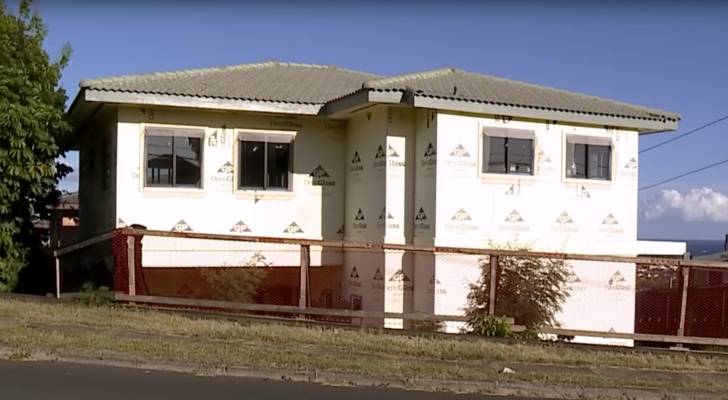New York woman being crushed by ‘nightmare’ $230K student debt due to parents’ ‘horrific financial advice’ — and The Ramsey Show hosts push her to finally ‘get serious’ about her life


When Lexi called into The Ramsey Show from New York, her voice carried the weight of crushing debt and the pressure of years of following flawed familial guidance. Lexi admitted she’d made a lot of "really bad financial decisions” in order to fulfill her parents’ dreams. They wanted her to pursue medicine. Don’t miss I’m […]
I’ve been a stay-at-home mom for 5 years but we’re struggling to get by on my husband’s $80K salary — does it make better financial sense for me to go back to work and pay for day care?


Many stay-at-home moms barely managing month-to-month find themselves weighing whether a part-time job or going back full-time (and paying for day care) makes more sense. Don’t miss I’m 49 years old and have nothing saved for retirement — what should I do? Don’t panic. Here are 6 of the easiest ways you can catch up […]
‘It’s just ugly’: Honolulu residents fed up with ‘monster home’ that’s been standing ‘derelict’ for 3 years — here’s what the city’s doing to crack down on these blights


Nestled in the Honolulu neighborhood of Kaimuki, a partially constructed building at 3615 Sierra Drive has become a focal point of contention. One of Hawaii’s so-called “monster homes” — unusually large residences, sometimes occupied by dozens of people — the structure has stood incomplete for three years, drawing criticism from residents and scrutiny from city […]
How 1 plastic shed in a Florida backyard set off a years-long legal battle that’s costing local homeowners thousands of dollars in HOA assessments — ways to avoid the same fate


Formerly friendly neighbors in Stonebriar, a quiet subdivision in northern Pinellas County, Florida, are at odds over an $82,000 special assessment the homeowner’s association (HOA) has levied. It’s a lot of money — $1,400 per household. Don’t miss I’m 49 years old and have nothing saved for retirement — what should I do? Don’t panic. […]
‘It’s heartbreaking’: More than 100 victims banded together through Facebook to seek justice after Houston business owner defrauded them of $1M — here’s how to spot a sketchy builder


For the third time, Amanda Sparks, the owner of A&L Sheds, has been arrested — this time, in Montgomery County, Texas. Authorities allege she scammed more than 100 people out of more than $1 million by promising to build sheds and tiny homes that were never delivered. Sparks’ previous arrests occurred in Gray and Harris […]
California woman admits she’s fed up with her ‘financially irresponsible’ boyfriend of 20 years who, at 56, has saved less than $10K for retirement. The Ramsey Show offers a path forward


Sarah, a 43-year-old from Anaheim, California, has finally had it with her partner of 20 years. “He’s financially irresponsible,” she told The Ramsey Show cohosts John Delony and George Kamel in a clip posted July 2. “He’s 56 and he’s got maybe $8-10,000 in retirement savings.” Now, Sarah is seeking a path forward after admitting […]
San Jose man flabbergasts Dave Ramsey when he admits he’s ‘secretly worth millions of dollars’ — and he’s kept his ‘spender’ wife of 5 years in the dark about their true financial situation


When Damon from San Jose called into The Ramsey Show, he didn’t ask how to get out of debt — he asked whether he should tell his wife they’re secretly worth millions. His question of whether he should ever disclose his secret to his wife caught listeners — and hosts Dave Ramsey and Ken Coleman […]
‘Being beat on with a sledgehammer’: Florida couple speak out after city issues ‘mind-blowing’ $366K fines for code violations they fixed — and they’re not the only ones facing excessive fees


What would you do if your city placed $366,000 in liens on your home after inspectors observed minor violations like broken window frames, cracked outlet covers and peeling paint? If you were Lauderdale Lakes residents Kenneth and Mildred Bordeaux, a Florida couple in their 80s, you’d hire a lawyer and fight back. "I feel like […]
After being laid off 4 months ago, I’ve applied to more than 200 jobs — but I just can’t seem to land an offer. With my emergency fund exhausted, I’m starting to feel hopeless. What do I do?
Facing a deep struggle after losing her job four months ago, one single 43-year-old job seeker has exhausted her emergency fund and can’t rely on her close network for help. But it’s not like she’s been sitting idly by watching her savings dwindle — she has applied to more than 200 positions yet hasn’t been […]
This Phoenix couple discovered termites, faulty pipes and a hole in the wall within days of closing on their dream home — despite it having passed inspections. Here’s their warning for buyers


A Phoenix couple’s homebuying joy turned into a cautionary tale after termites, burst pipes and a hidden hole in the wall surfaced just days after they closed on a property. Hailey and Alex Aguire were thrilled to return to Arizona from the East Coast and settle into a remodeled home they’d secured after a quick […]
